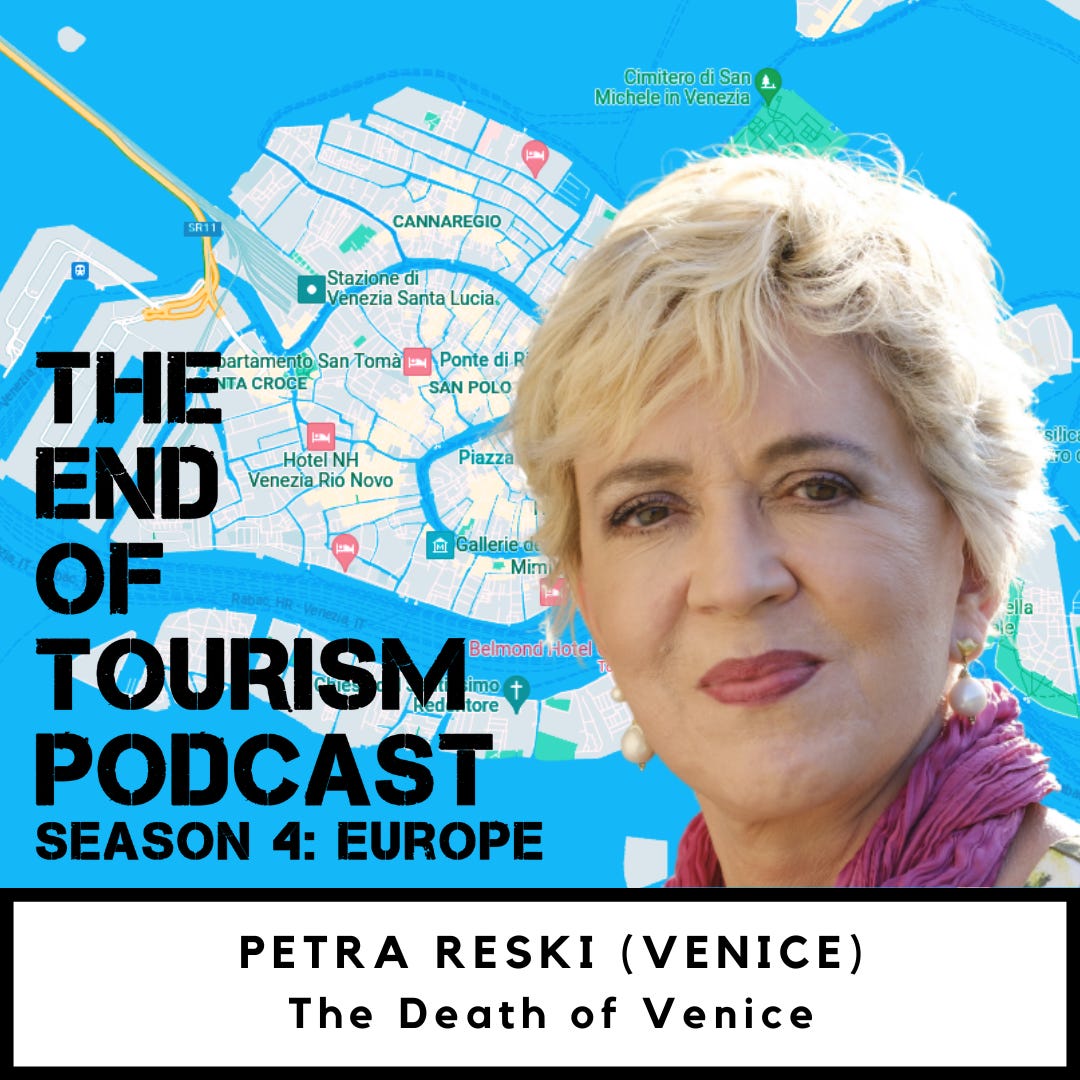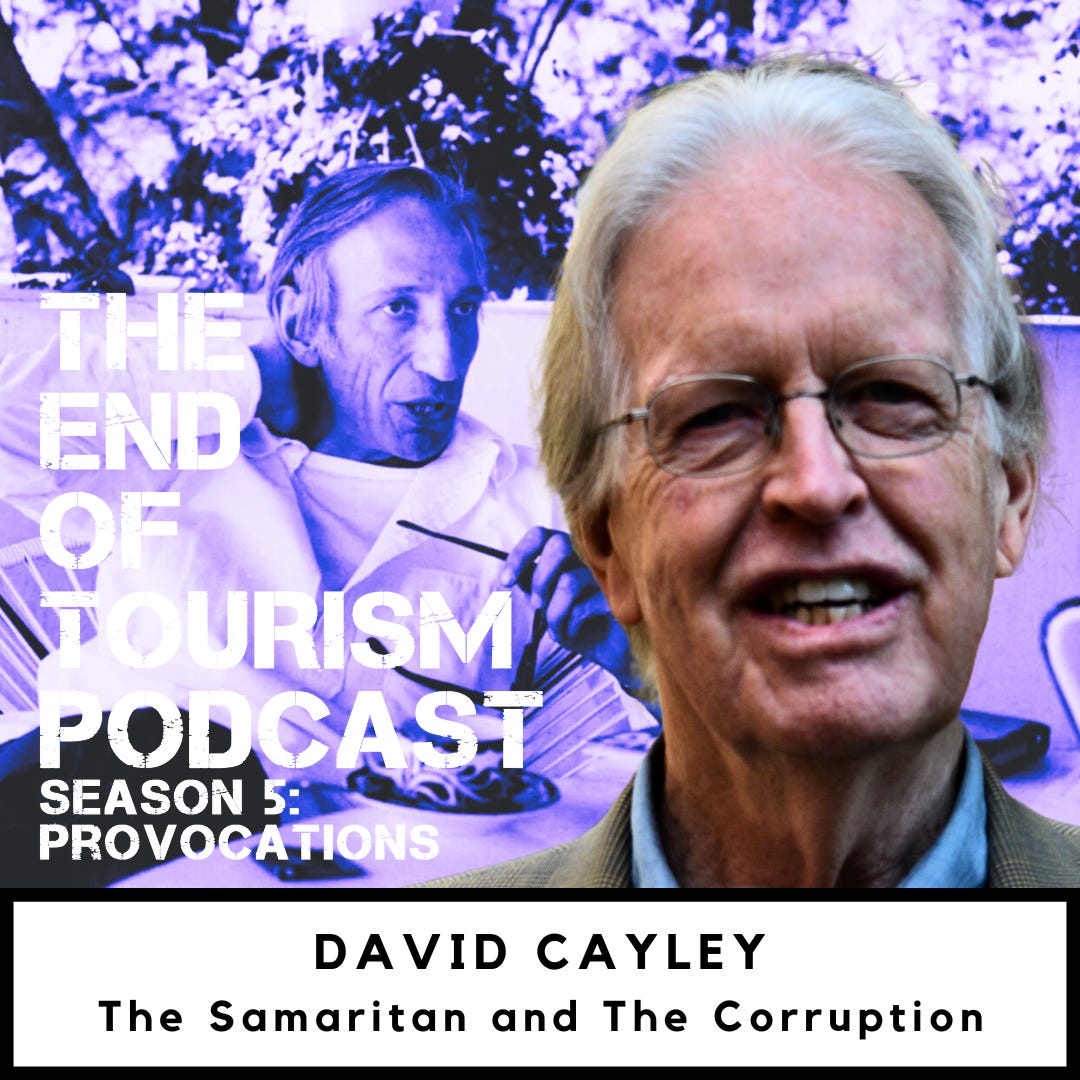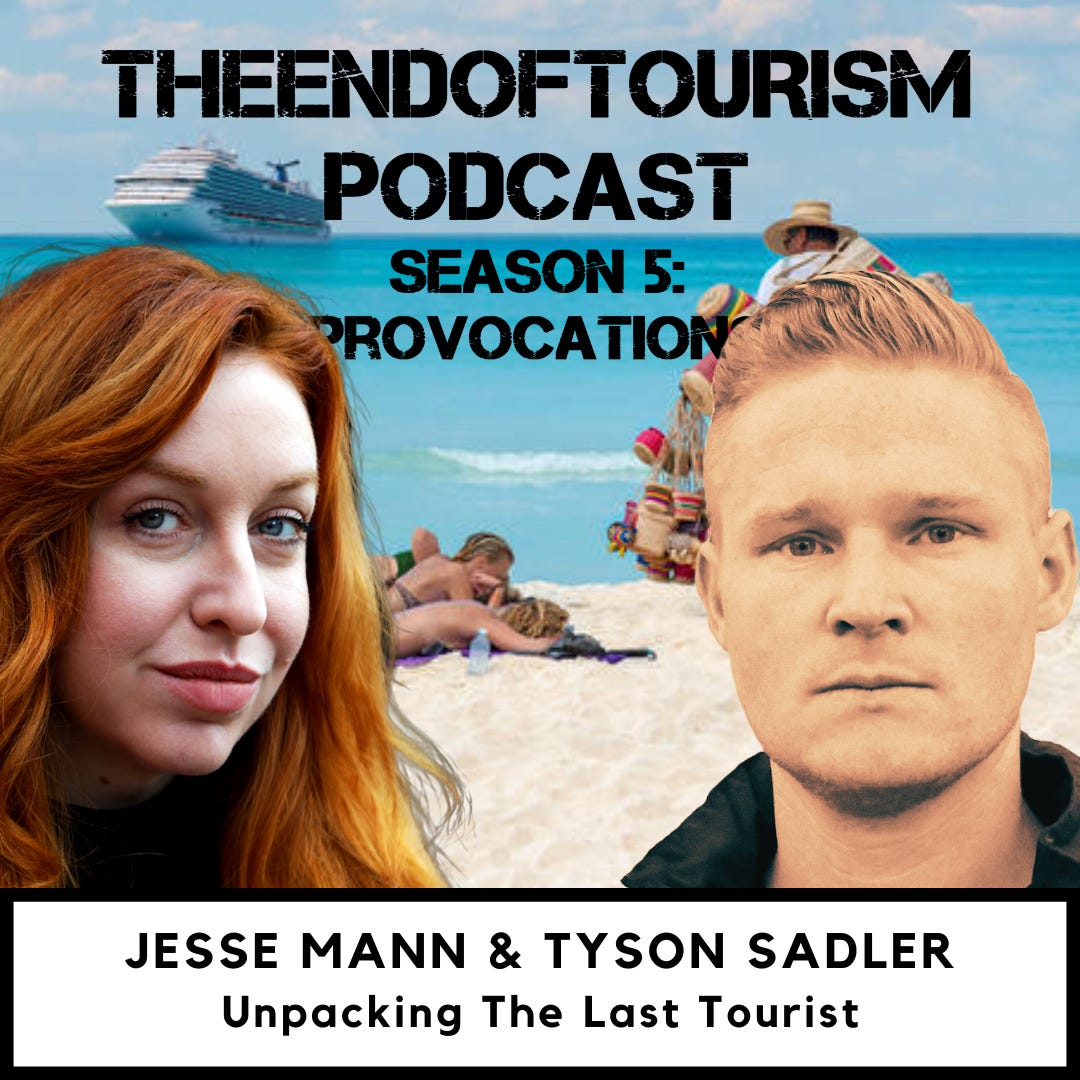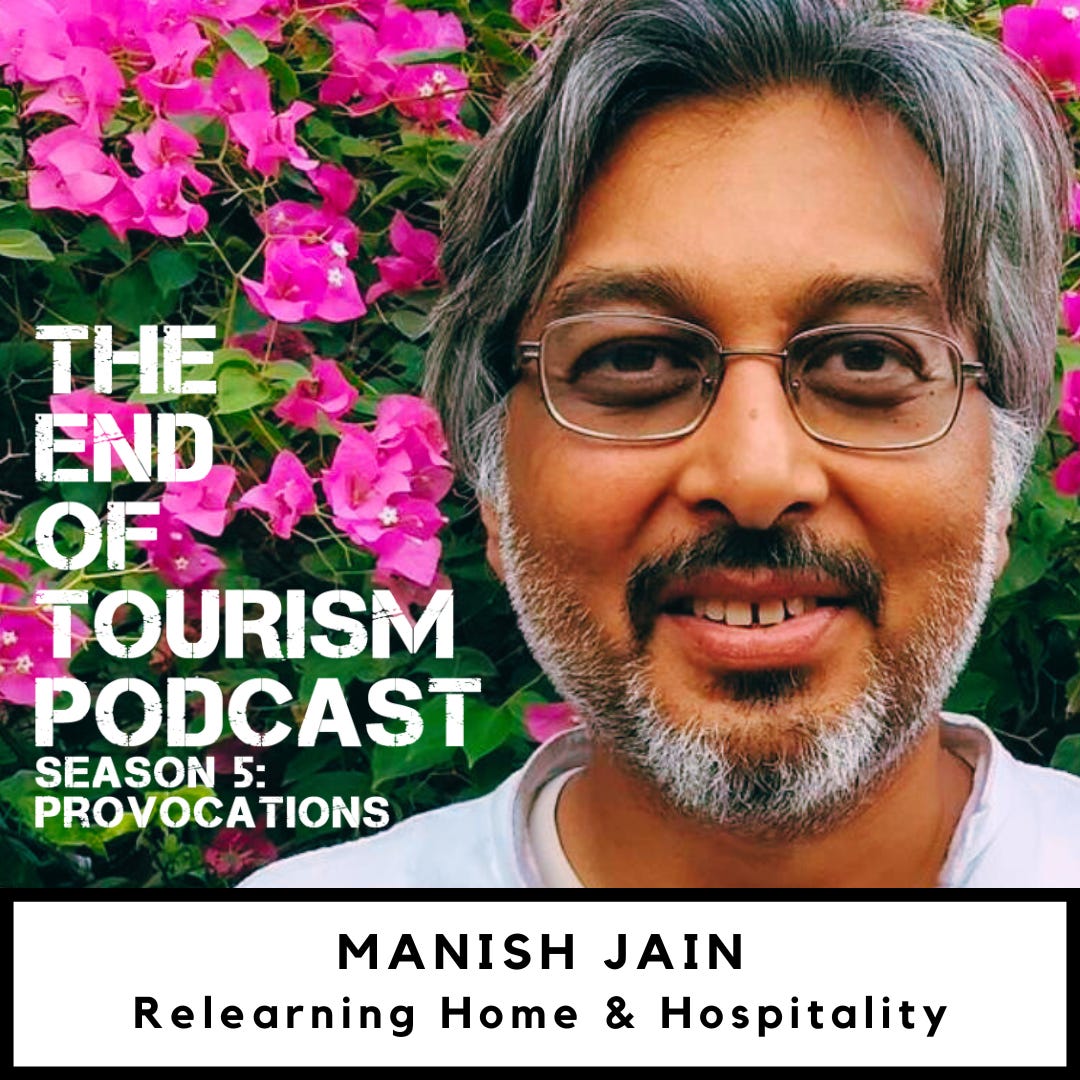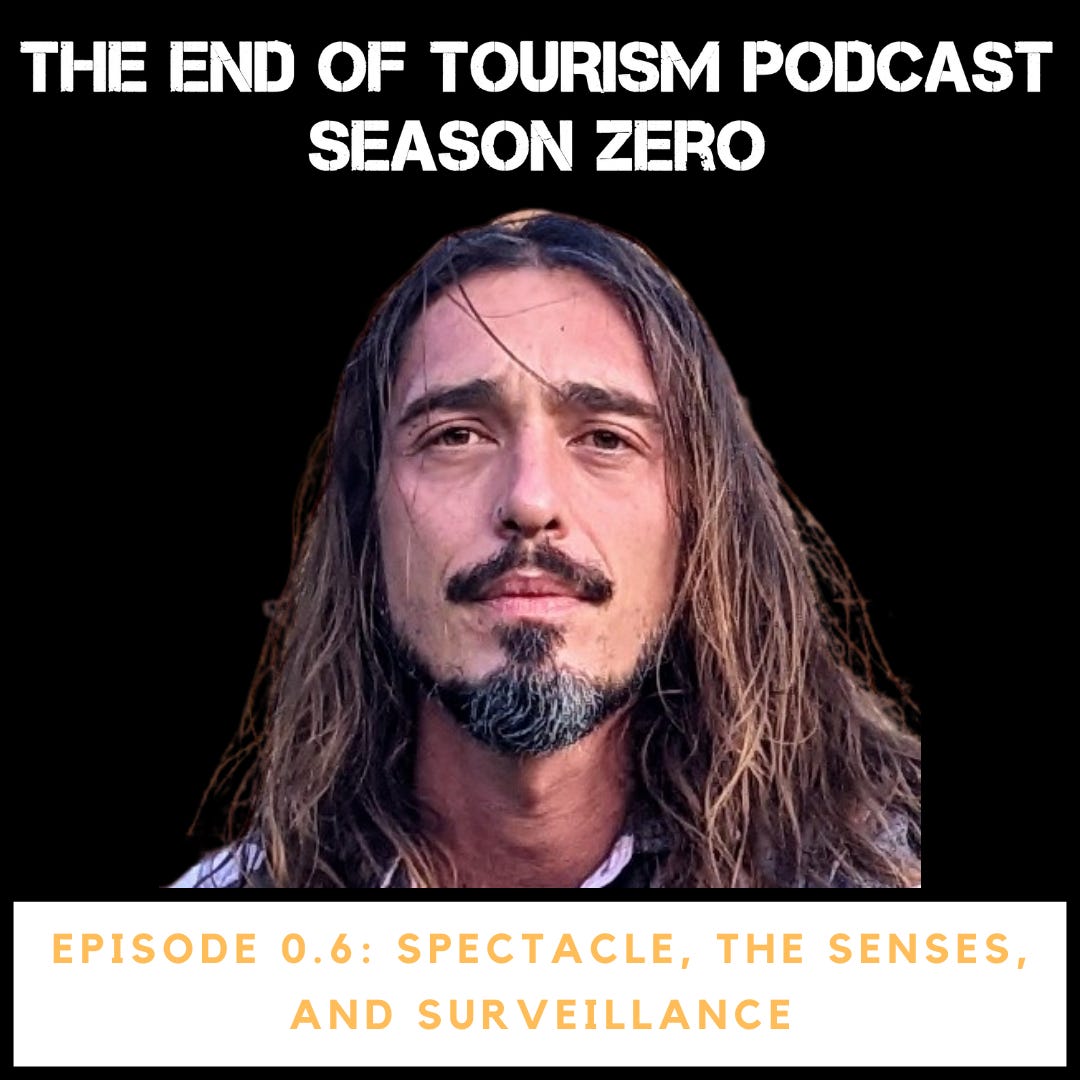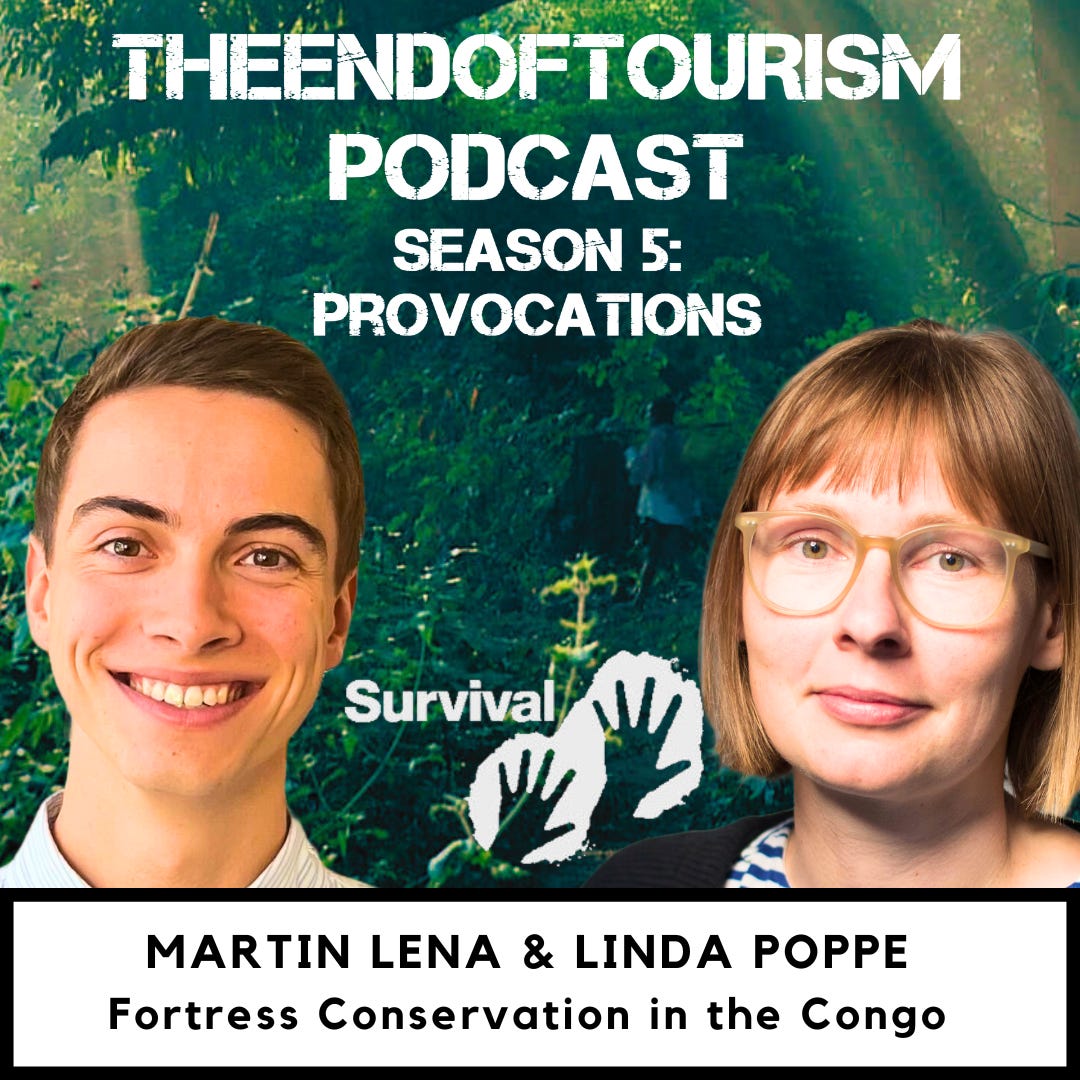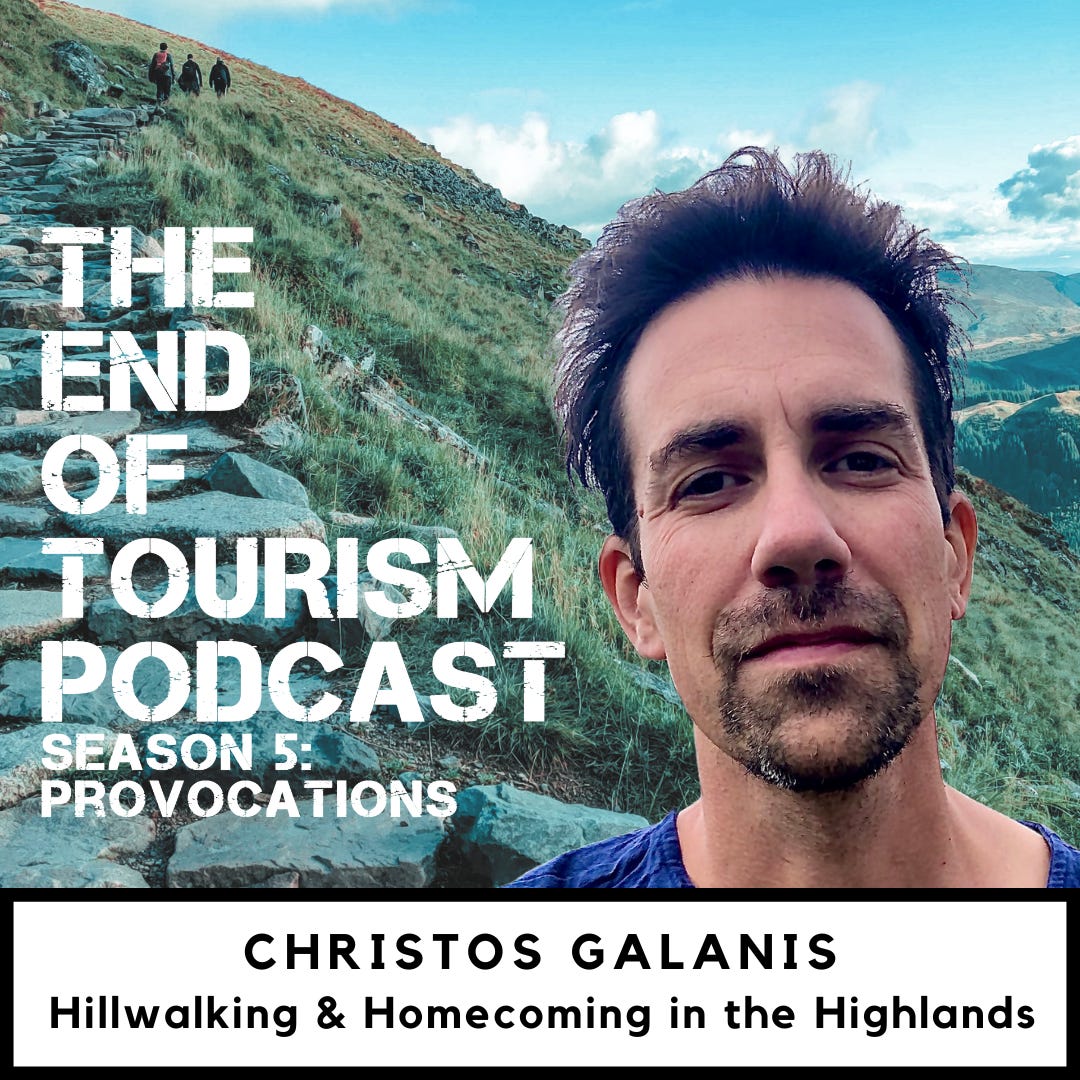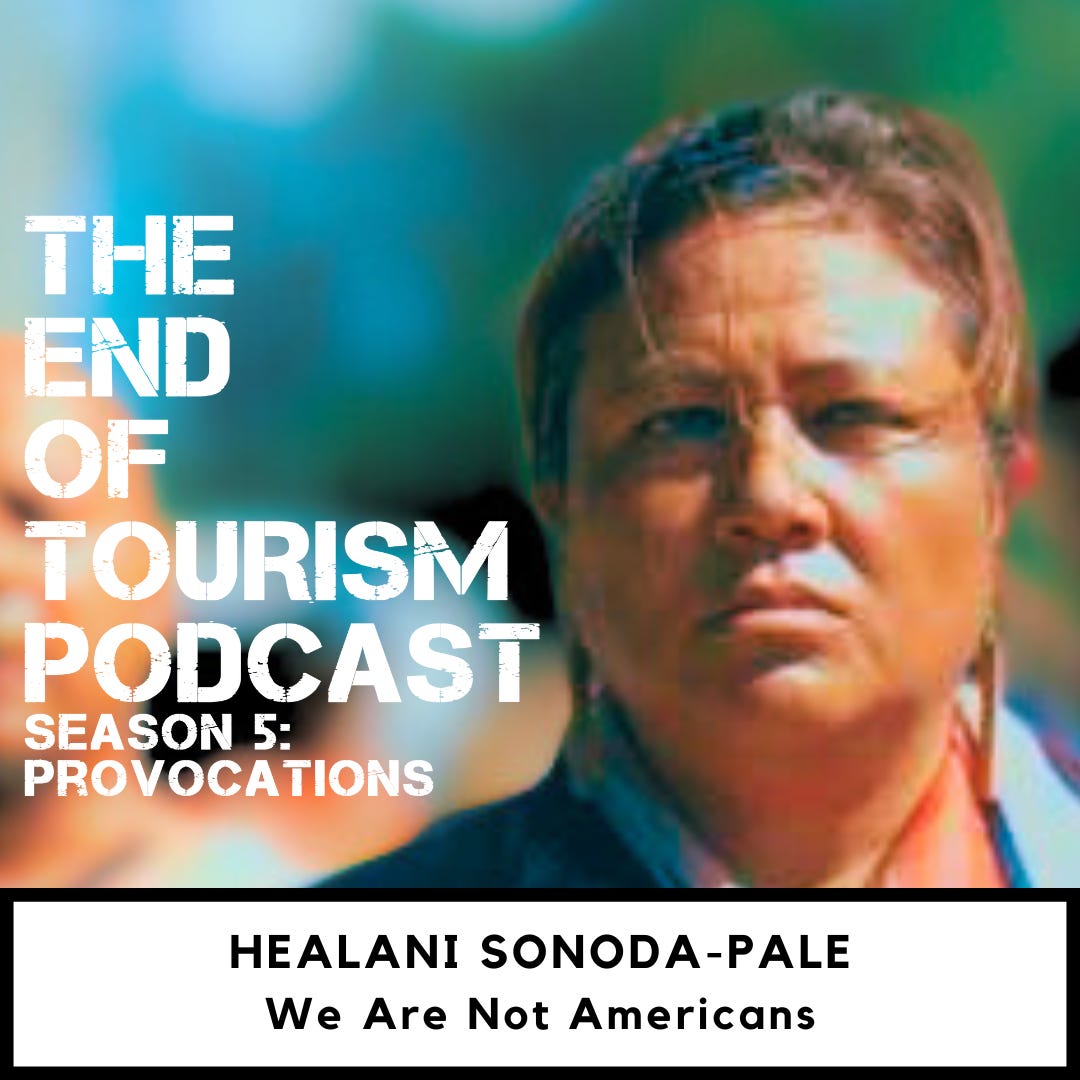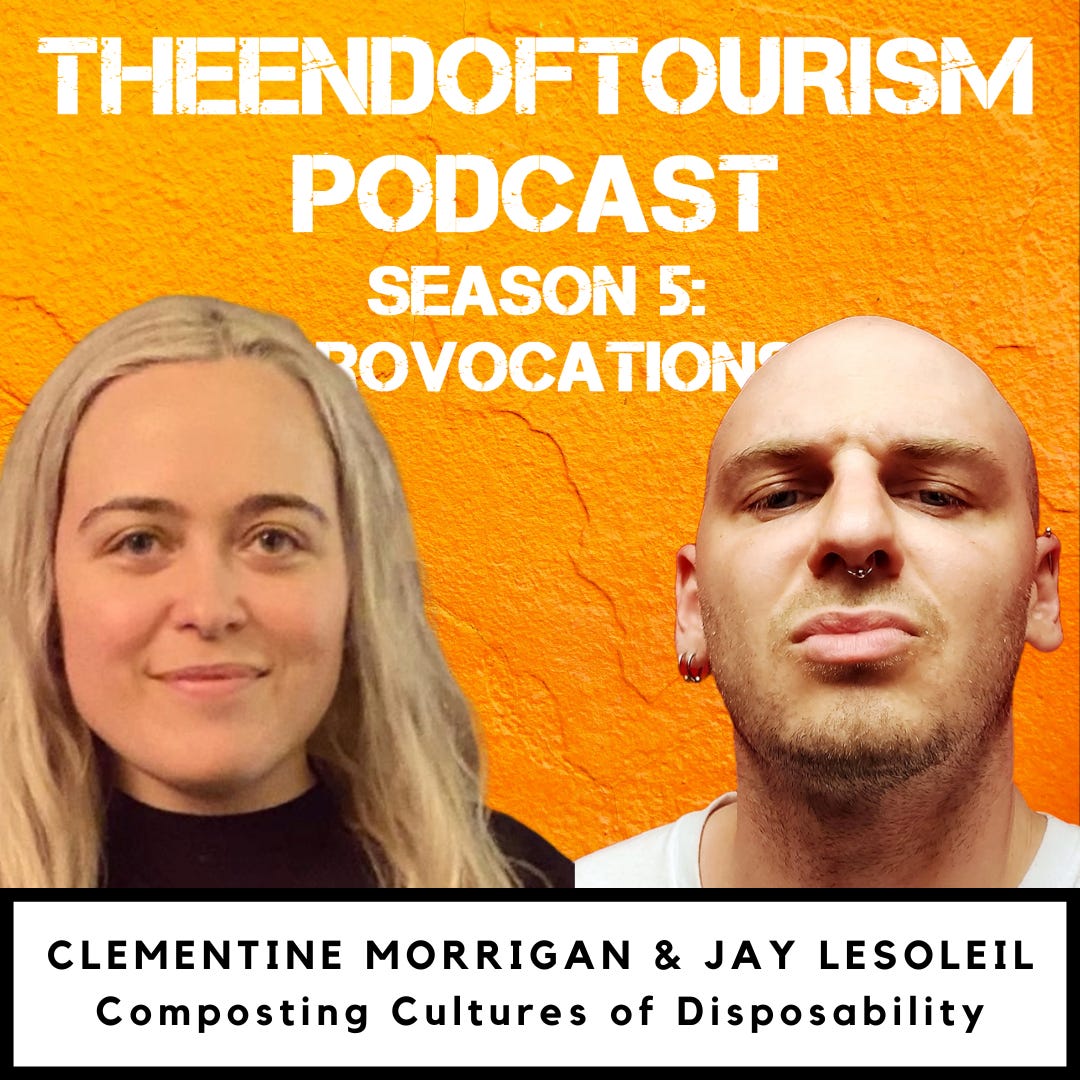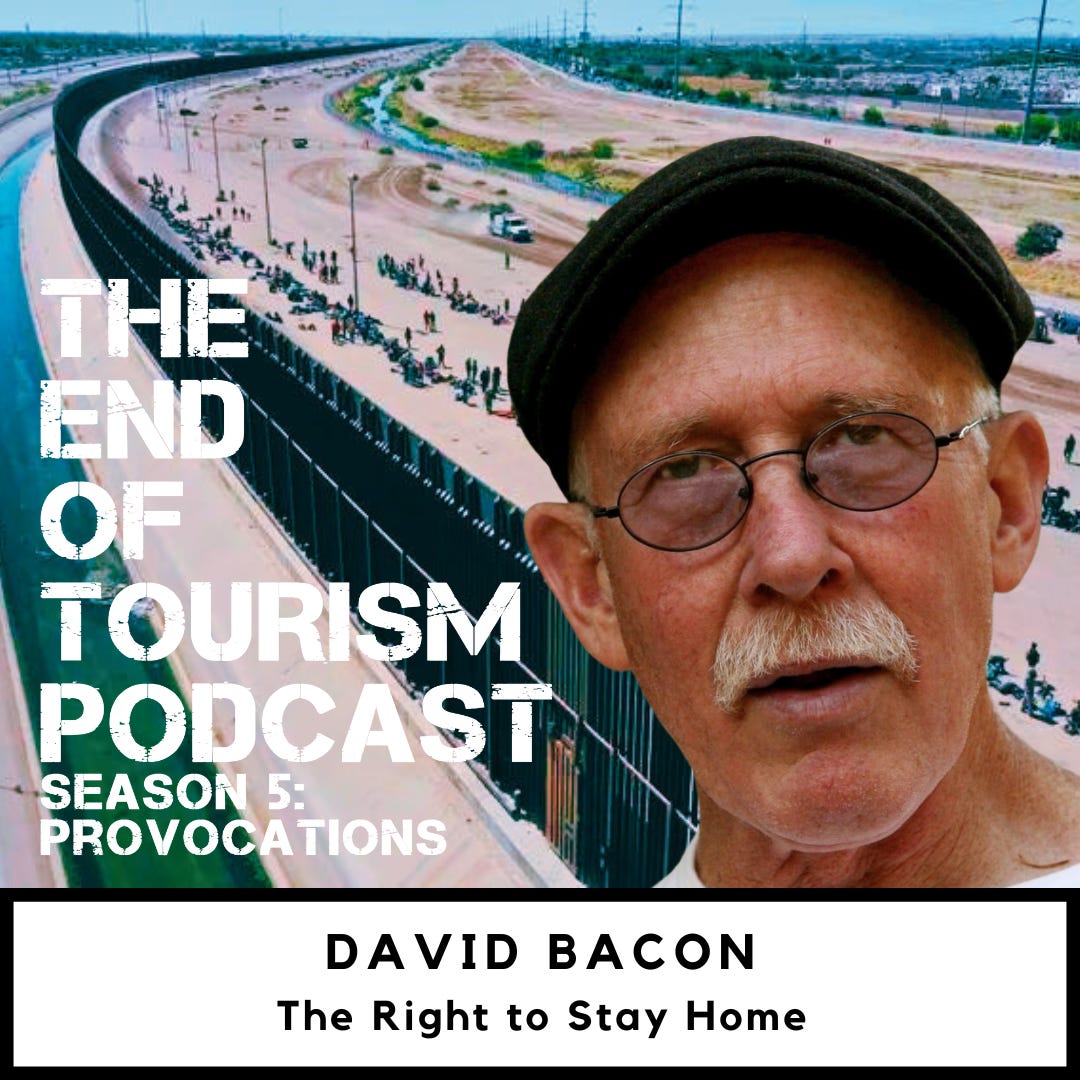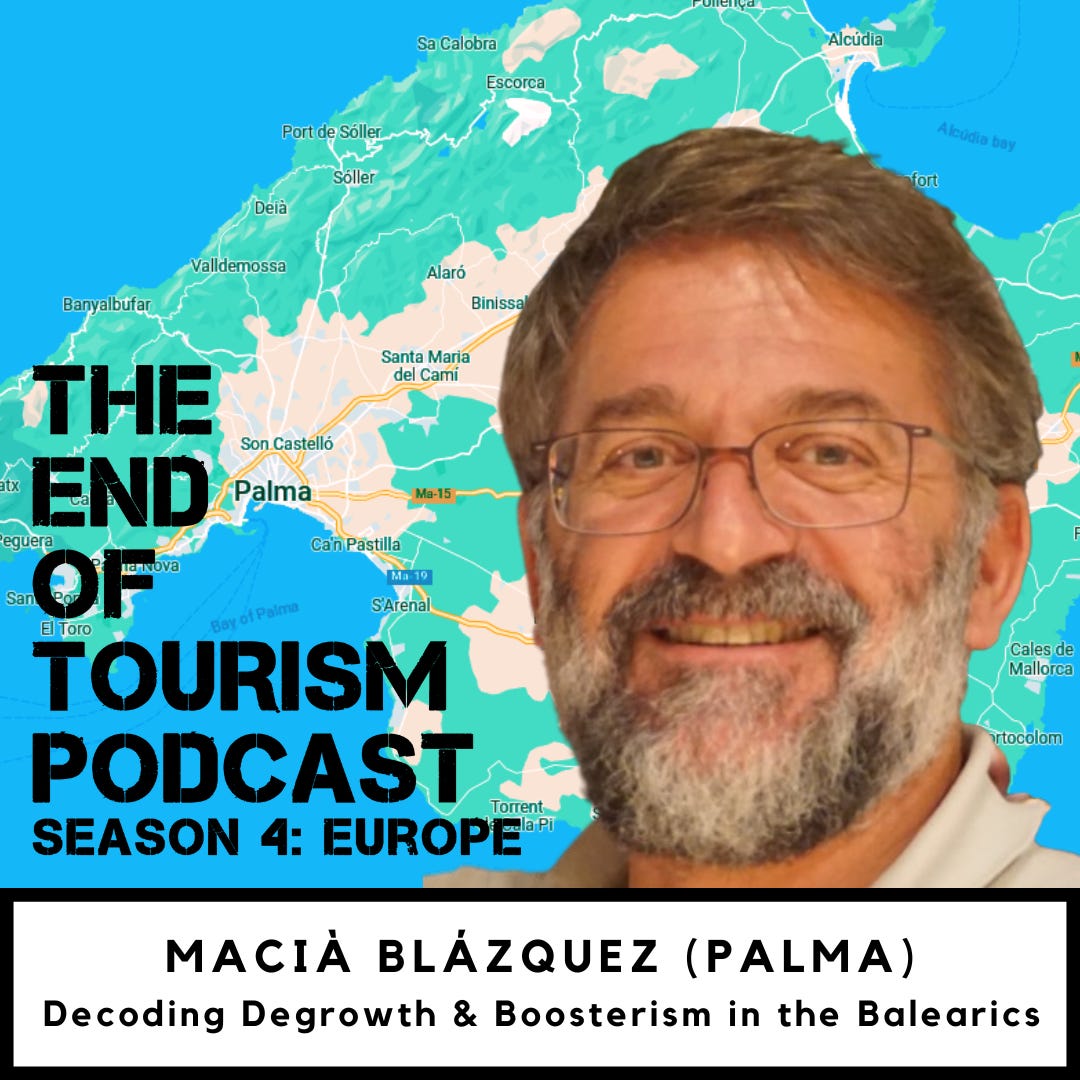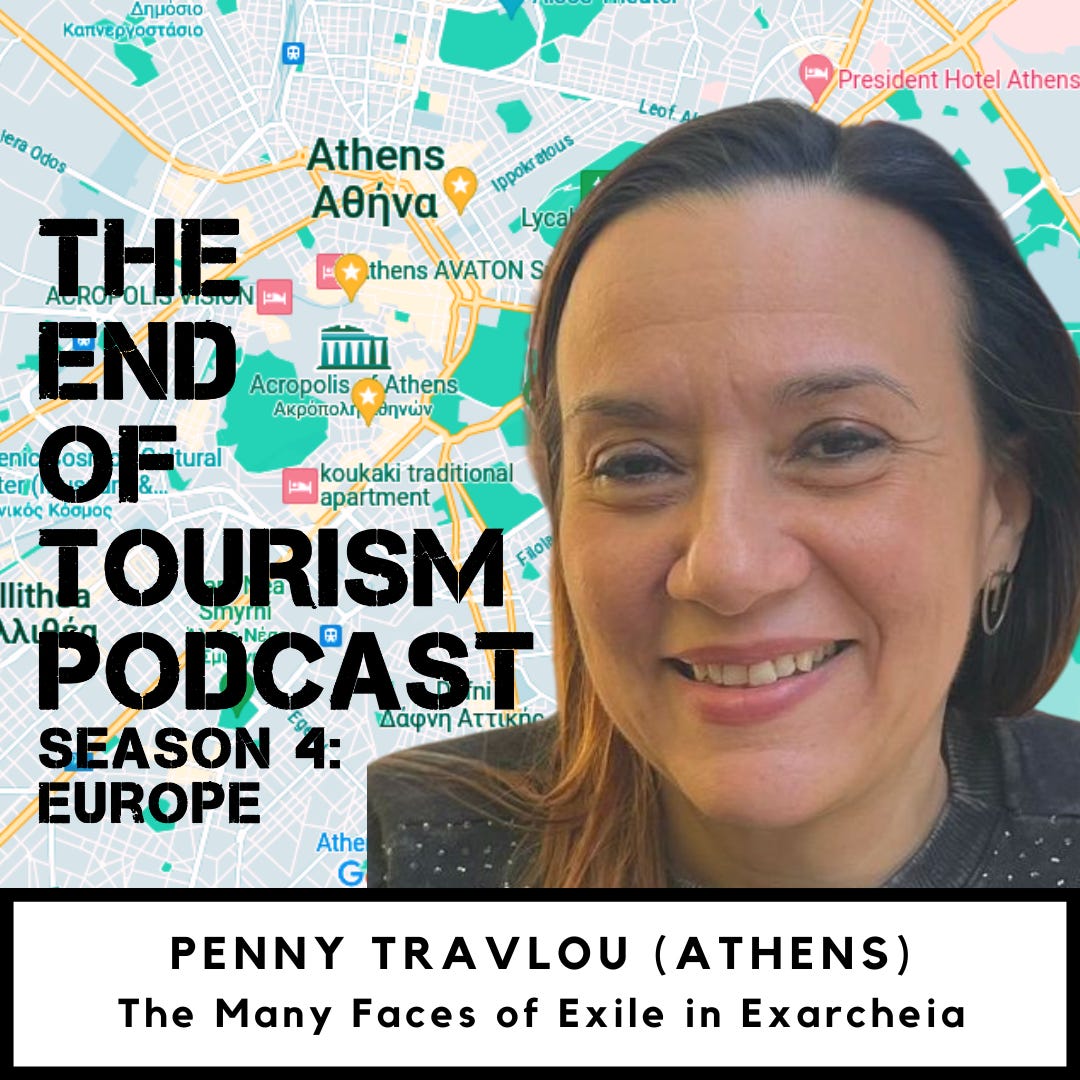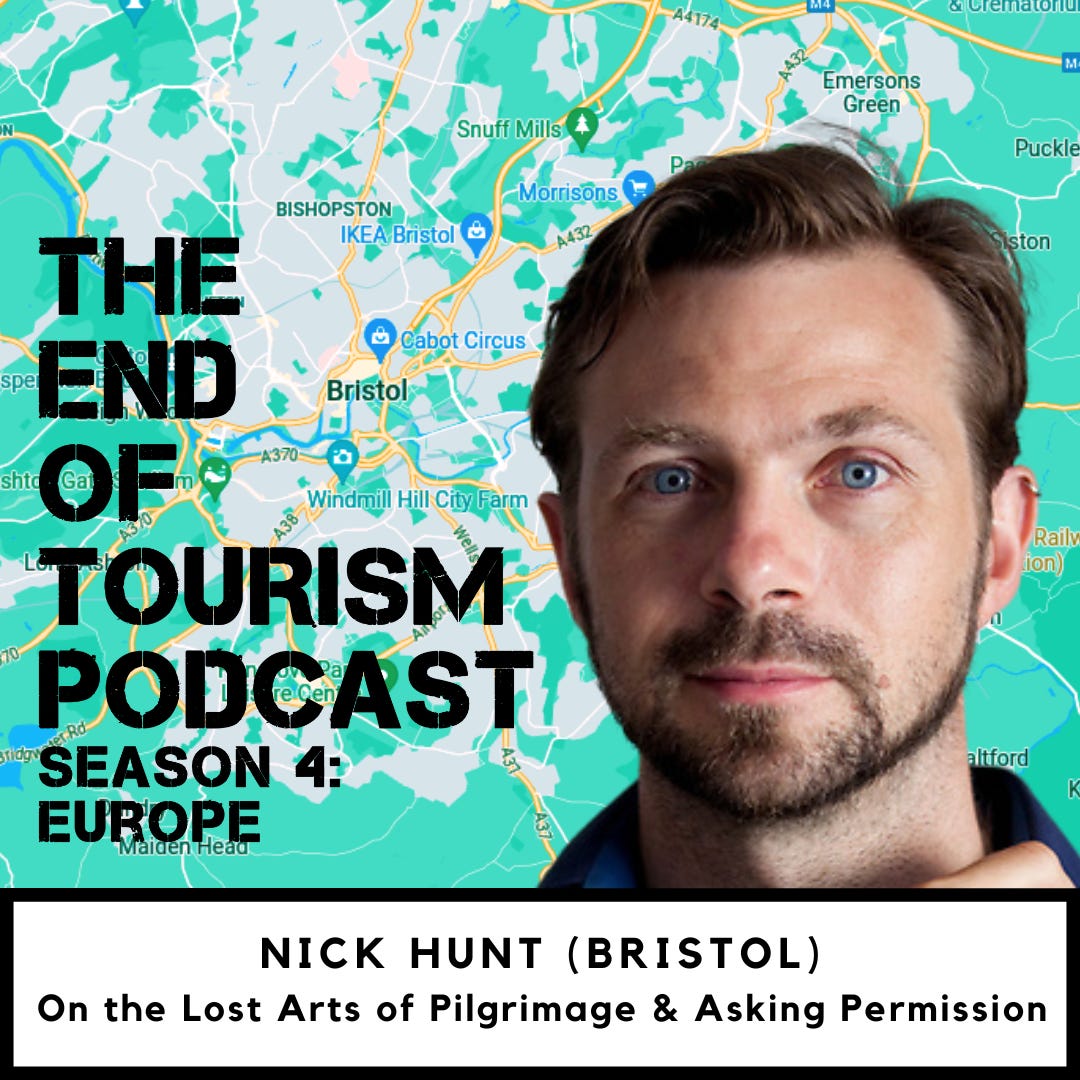S4 #1 | The Death of Venice w/ Petra Reski (Venice)
Description
My guest on this episode is Petra Reski, a German writer and journalist who has lived in Venice since 1991. As a result of her numerous publications on the Mafia, she was subjected to lawsuits and threats, which is why she received police protection for a while. She has received numerous awards, including the prestigious Ricarda Huch Prize in 2021, which is awarded every three years to personalities whose work is characterized by independent thinking and courageous action, and who are fully committed to the ideals of humanity and international understanding.
She has not only written novels, non-fiction books and numerous articles about her hometown of Venice, but also made a film already in 1998 with the prophetic title "The Last Venetians". Her most recent book is about the sell-out of Venice and has been published in Germany, Italy and France. She is a member of PEN and since 2018 has been driving a small fishing boat with which she can also park in reverse.
Show Notes
Everyday Life on an Overtouristed Island
The Last Venetians
The Fascist Political Rigging of Municipal Politics
Murano Glass and The Death of an Island
The Changes in Venice in the Last 30 Years
Taking Back Venice in the Pandemic
April 19, 2023 Collective Action & Referendum in Venice
The Loss of the Venetian Language
Once I Fell into the Grand Canal
Homework
Petra’s Website: www.petrareski.com
Books: https://www.petrareski.com/buecher/
Book in English: https://www.petrareski.com/buecher/mafia/the-honoured-society/
Discover more episodes and join the conversation: http://www.theendoftourism.com
You can follow us on Facebook, Instagram, Twitter @theendoftourism
Likewise, you can join the conspiracy and support the pod by subscribing below:
Transcript
[00:00:00 ] Chris: Welcome to the end of tourism podcast, Petra. Could you tell us a little bit about where you're speaking from today and what the world looks like for you, where you are?
[00:00:08 ] Petra: Well, actually, I'm speaking from the center of Venice, just kind of not even 300 meters to the square, San Marco Square.
So in the middle of everything, what happens here because 90% of the tourists who come to Venice go to San Marco Square and to the Rialto Bridge, and that's all. So, I'm in the middle of what people consider, unfortunately, interesting for just a day trip, for example.
[00:00:43 ] Chris: "in the belly of the beast" we, we might say in English, yes. Yeah. I mean, not to denigrate, right? I'm sure that despite the, the hordes, the masses that there's, there's beauty to be found there still.
[00:01:01 ] Petra: Yeah. Yeah. It is. It is, of course. But let's say for us it's a little bit, how do you say it? Because what we just experienced yesterday was the 1st of May, so it's a holiday.
So we had long period of holidays. The 25th of April is a national holiday. So, we have been overcrowded by people. And the problem is even if you live upon tourism, like pizzeria, whatever, you can't even organize because you can't expect today it will be the mass and tomorrow there is nothing because it's changing.
Even depends on the weather. Sometimes it's raining. People don't come that much. Or in this case it was almost cloudy. Not really nice weather for a trip to Venice, but it was overcrowded for one day and the next day there's nothing. So, let's say you are organizing a pizzeria and you can't even buy things, so everything is just in the freezer.
It's nothing fresh. So, even for this simple motives, it's a problem here. You can't even calculate like you do it in a normal town where people come, you have kind of periods how to, organize your work. No.
[00:02:14 ] Chris: Yeah, certainly. I feel that in the sense of, you know, there's certain types times of year in Oaxaca as well where many of the locals here, they either stay in their homes or they leave the city for an extended time. And this is just part and parcel of what it's like to live in a tourist city and so in that regard, Petra, I wanted to ask you, you're an award-winning journalist, an author of many books, articles, and, and novels.
I'm curious what drew you to Venice in the first place?
[00:02:48 ] Petra: Well, actually, for me, for example, I didn't know anything about Venice. When I moved to Venice, I moved to Venice just for a romantic reason, because I knew a Venetian. So that's the only reason I moved to Venice. For me, it would've seemed like, I've lived in Berlin, I lived in Paris, and Venice was not the place I wanted to be actually. So, it was just a choice because I have been drove by this Venetian, who, he like all the Venetians, if he looks outside of the window and he can't see water, so he feels bad.
So that's the reason why. And he's very Venetian and he's very attached to a city and to the culture, so for him it would be impossible to live anywhere else. While for me it was easier. So many people, I know so many, who come to Venice and they buy a house or apartment or whatever because it's so romantic to live in Venice.
That wasn't the case for me. My romantic reasons were different, like the man I met here a long time ago. So, well I lived here in Venice and I tried to do a kind of normal life, like because I'm a journalist, so I'm not writing always about Venice. I'm, I'm traveling around in Italy and my special subject, for example, is mafia.
So I'm not connected to this to tourism. I don't live upon tourism, but I just feel the consequences of tourism and as a journalist, for me it was like the experience to see, because I arrived here actually in 89, and even at the time, one of the first journalistic things I did was, for example, for the radio transmission about the so-called last Venetians, and we are talking about 30,000 Venetians more than today.
We were more than 80,000 at the time. 85,000. Wow. If I remember. So, because we lose every year, thousands habitants. And that was for me, quite curious. I wanted to understand the reasons why it is like this. Mm-hmm. And for Venice, what is not almost not known at all outside of Venice, I'm not talking even about in Europe or somewhere else, but even outside a few kilometers outside of Venice, they don't know that Venice is, by a political choice at the time of fascism, there was a group of industrialists who had this good idea to say, well, Venice, it's nice.
And we keep it like a museum. And we put all industry, everything, which is not really nice, attractive, we put it on the mainland. Mm-hmm. So, the petrol chemical industry, for example, the oil at the time, but it started really only in the fifties and sixties. So, they settled the whole industry on the mainland and.
At one certain point it was very important for the development of Venice was in 66 when there was the first really disaster of high water in Venice. And what they did, they created at the time of fascism.
The whole administration, Venice is called now Venice, which is Venice, and they call it Venice, which is not Venice because Venice, as everybody knows, is inside the water, it's island. Mm. But they consider for administration, mainland as Venice. This is very interesting because we are suffering from this monoculture of tourism.
And this monoculture of tourism has been started already, kind of 30 years ago. Really, it was really the aim, the drive at a monoculture of tourism, not to do anything else, no industry, not even small industry in Venice, not more classical things like construction of boats or anything else.
Just only monoculture of tourism and the reason why, because for example, if you consider the island of Murano, the Murano glass factories, as there was a, a certain moment, the Murano glass factories actually, they have a kind of problem because they live on Murano. So everything that has to be brought to the island is much more expensive than if you produce on the mainland, of course. Mm-hmm. So the European community supports regions who are for geographical reasons disadvantaged, like Murrano obviously. So they had kind of suspension and they felt fine with this, but at a certain time, of course the European community said, well actually you are not an island.
You are mainland. Mm. And in this case, the mayor should have said, well, actually, it's a problem because we are both. And so if you are both, you can't have this suspensions. You can't have this money from the European country. And this was the reason why today, for example, Murano is dead.
The Moran glass industry is completely dead. Yeah, they don't have any more. They even had to pay back the European community or the money they had . And so it has been a political decision just to isolate Venice and to maintain Venice just only as a kind of monoculture as a museum without.
And the last obstacles in a way are the last remaining Venetians. Mm-hmm. And they have to be pulled out. And I think at the speed in which the Venetians are pushed out of the city because they don't find departments because everything is Airbnb.
They don't find any job, which is not in the tourism. So it's will be completely dead in a few years, not even.
[00:09:00 ] Chris: Wow. Those are strong words. I'd like to, return to this notion of the quote last Venetians shortly. But I'd like to ask you just to give a little bit of co

